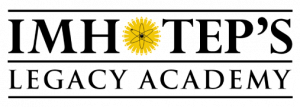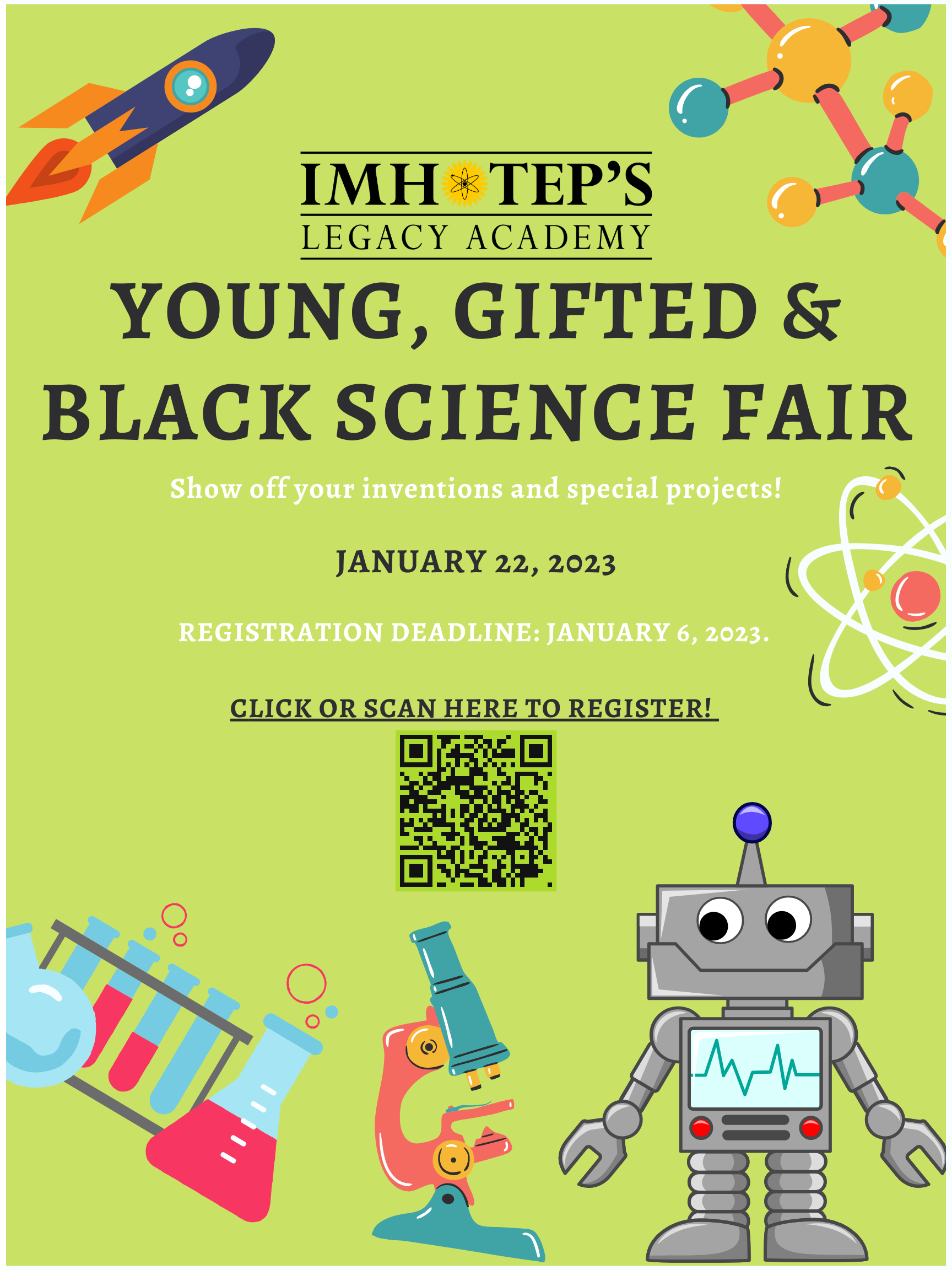INFORMATION FOR STUDENTS
Imhotep’s Legacy Academy (ILA) is hosting our 2nd annual Young, Gifted & Black Science Fair (YGBSF). This Science Fair is designed to get students of African descent excited about science, technology, engineering, and math (STEM).
- Each student must register in their corresponding grade category.
- The projects must be done individually.
- ILA will provide all applicants with logbooks.
- The projects for YGBSF must be fully built.
- All YGBSF projects will be judged, and ILA will give prizes to the top three students.
- The top three YGBSF projects will go to Phase 1 of the Canadian Black Scientists Network (CBSN) national competition.
- The projects for CBSN competitions must be fully built.
- All projects from CBSN Phase 1 will go to CBSN Phase 2.
- ILA will pay for the registration fees and the cost of materials required for any YGBSF projects that win CBSN Phase 1.
- ILA will also help to arrange STEM mentors for these students.
- The top four students from CBSN (Phase 2) science fair will go to the Regional Wide Science Fair.
The registration deadline is January 6th, 2023 at 11:59pm. Register Here
Grade Categories
- Junior – Grades 7-8
- Intermediate – Grades 9-10
- Senior – Grades 11-12
Exciting Gift Prizes
ILA will give prizes to the top three (3) students from the YGBSF in Nova Scotia:
- 1st Prize – $100 value
- 2nd Prize – $75 value
- 3rd Prize – $50 value
- The top three students will receive medals
- Participants will receive certificates and an ILA gift bag.
CBSN will give prizes to the top three (3) students from the CBSN regional competition (Phase 2):
- 1st Prize – $150 value
- 2nd Prize – $125 value
- 3rd Prize – $100 value
- Each top student will receive a fully paid trip to Edmonton, Alberta to attend the Canada-wide Science Fair.
TIMELINE
| ACTIVITY | DESCRIPTION | DATE | LOCATION |
|---|---|---|---|
| REGISTER | Registration deadline | January 6th, 2023 | |
| PRACTICE | Practice Science Fair | January 15th, 2023 | Virtual |
| COMPETE LOCALLY | Young, Gifted & Black Science Fair (YGBSF) | January 22nd, 2023 | Virtual |
| COMPETE REGIONALLY-1 | Canadian Black Scientists Network (CBSN) national competition (Phase 1) | February 4th, 2023 | Virtual |
| COMPETE REGIONALLY-2 | Canadian Black Scientists Network (CBSN) national competition (Phase 2) | April 1, 2023 | In-person ILA Learning Center 1360 Barrington Street, Room J134 |
| COMPETE NATIONALLY | Canada-wide Science Fair (CWSF) | May 14th – 19th, 2023 | Edmonton, Alberta |
For answers to any questions, please contact ILA Program Manager, Mr. Asher Trim-Gaskin by phone (902-494-2400) or by email asp.imhotep@dal.ca



